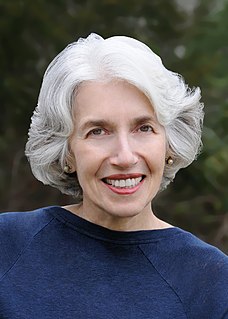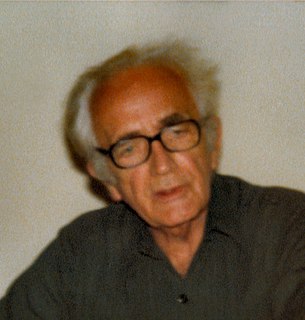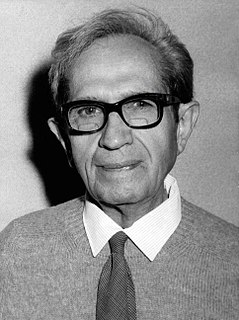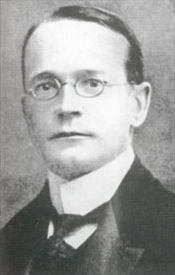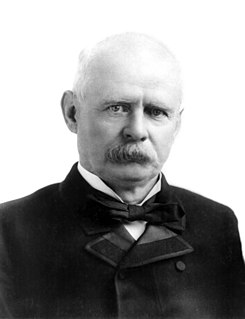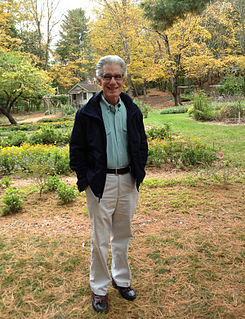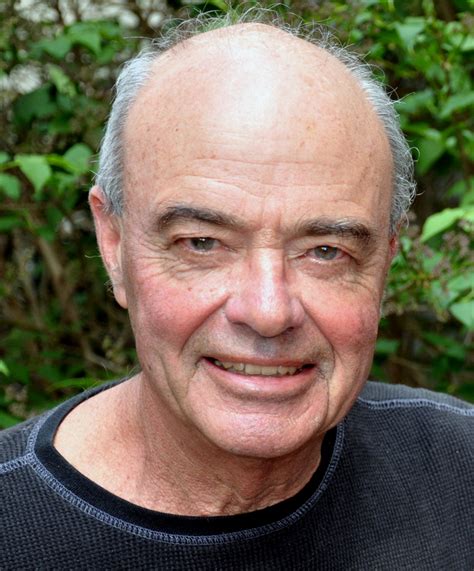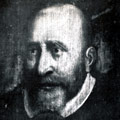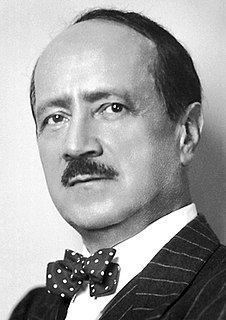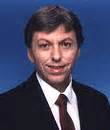Top 102 Astronomers Quotes & Sayings - Page 2
Explore popular Astronomers quotes.
Last updated on April 18, 2025.
I do not see how astronomers can help feeling exquisitely insignificant, for every new page of the Book of the Heavens they open reveals to them more and more that the world we are so proud of is to the universe of careening globes as is one mosquito to the winged and hoofed flocks and herds that darken the air and populate the plains and forests of all the earth. If you killed the mosquito would it be missed? Verily, What is Man, that he should be considered of God?
So we down-to-earth, gutsy, tough, realistic, and practical types have just been squandering billions of dollars and unimaginable amounts of energy, nerve-work, and materials in whizzing off to the moon to discover, as astronomers knew before, that it was just a dreary slag heap. This is the true, original and scientifically etymological meaning of being lunatics. Crying for the moon.
One of the primary ways that astronomers study stars is to spread their light out into a rainbow, which we call a spectrum, and from that rainbow, we can learn something about what the stars are composed of and how hot they are, how bright they are, and how they're moving, at least how they're moving toward or away from us.
It is interesting to observe with what singular unanimity the farthest sundered nations and generations consent to give completeness and roundness to an ancient fable, of which they indistinctly appreciate the beauty or the truth. By a faint and dream-like effort, though it be only by the vote of a scientific body, the dullest posterity slowly add some trait to the mythus. As when astronomers call the lately discovered planet Neptune; or the asteroid Astr
There is nothing as dreamy and poetic, nothing as radical, subversive, and psychedelic, as mathematics. It is every bit as mind blowing as cosmology or physics (mathematicians conceived of black holes long before astronomers actually found any), and allows more freedom of expression than poetry, art, or music (which depends heavily on properties of the physical universe). Mathematics is the purest of the arts, as well as the most misunderstood.
Astronomers have a common ground for discussion with musicians in the harmony of the stars and musical concords in tetrads and triads of the fourth and the fifth, and with geometricians in the subject of vision; and in all other sciences many points, perhaps all, are common so far as the discussion of them is concerned. But the actual undertaking of works which are brought to perfection by the hand and its manipulation is the function of those who have been specially trained to deal with a single art.
The astronomers said, 'Give us matter and a little motion and we will construct the universe. It is not enough that we should have matter, we must also have a single impulse, one shove to launch the mass and generate the harmony of the centrifugal and centripetal forces.' ... There is no end to the consequences of the act. That famous aboriginal push propagates itself through all the balls of the system, and through every atom of every ball.
To reduce modern climate change to one variable, CO2, or a small proportion of one variable - human-induced CO2 - is not science. To try to predict the future based on just one variable (CO2) in extraordinarily complex natural systems is folly. Yet when astronomers have the temerity to show that climate is driven by solar activities rather than CO2 emissions, they are dismissed as dinosaurs undertaking the methods of old-fashioned science.
Earlier maps had underestimated the distances to other continents and exaggerated the outlines of individual nations. Now global dimensions could be set, with authority, by the celestial spheres. Indeed, King Louis XIV of France, confronted with a revised map of his domain based on accurate longitude measurements, reportedly complained that he was losing more territory to his astronomers than to his enemies.
Yet the widespread planetary theories, advanced by Ptolemy and most other astronomers, although consistent with the numerical data, seemed likewise to present no small difficulty. For these theories were not adequate unless they also conceived certain equalizing circles, which made the planet appear to move at all times with uniform velocity neither on its deferent sphere nor about its own epicycle's center.
The dark dangerous forest is still there, my friends. Beyond the space of the astronauts and the astronomers, beyond the dark, tangled regions of Freudian and Jungian psychiatry, beyond the dubious psi-realms of Dr. Rhine, beyond the areas policed by the commissars and priests and motivations-research men, far, far beyond the mad, beat, half-hysterical laughter... the utterly unknown still is and the eerie and ghostly lurk, as much wrapped in mystery as ever.
Astronomers are pure of heart and appealingly puerile. They look into the midnight sky and ask big questions, just as we did when we were in college: Who are we? Where do we come from? And why are we standing around outside on the night before finals, do we want to end up making elevator parts for a living like our father or what?
Radio astronomers study radio waves from space using sensitive antennas and receivers, which give them precise information about what an astronomical object is and where it is in our night sky. And just like the signals that we send and receive here on Earth, we can convert these transmissions into sound using simple analog techniques.
Today we know not only that there is a terrible amount of disorder in the heavens - great catastrophes or conflagrations occur frequently - but evolution gives us a perfectly natural explanation of such order as there is. No distinguished astronomer now traces "the finger of God" in the heavens; and astronomers ought to know best.
The cosmic game changed forever in 1992. Before then, logic told us that there had to be other planets besides the nine (if you still count poor Pluto) in our solar system, but until that year, when two astronomers detected faint, telltale radio signals in the constellation Virgo, we had no hard evidence of their existence.
By the way, were we to find life-forms on Venus, we would probably call them Venutians, just as people from Mars would be Martians. But according to rules of Latin genitives, to be “of Venus” ought to make you a Venereal. Unfortunately, medical doctors reached that word before astronomers did. Can’t blame them, I suppose. Venereal disease long predates astronomy, which itself stands as only the second oldest profession.
Evidence in support of general relativity came quickly. Astronomers had long known that Mercury’s orbital motion around the sun deviated slightly from what Newton’s mathematics predicted. In 1915, Einstein used his new equations to recalculate Mercury’s trajectory and was able to explain the discrepancy, a realization he later described to his colleague Adrian Fokker as so thrilling that for some hours it gave him heart palpitations.
I have been told that one of the reasons the astronomers of the world cooperate is the fact that there is no one nation from which the entire sphere of the sky can be seen. Perhaps there is in that fact a parable for national statesmen, whose political horizons are all too often limited by national horizons.
I've got a telescope in my garden and one of the things I love to do is go out and let the sky, the night sky, the galaxies, the Orion nebula, have an impact on my mind. I find that awe inspiring. And just to contemplate on what the astronomers have revealed to us about the immense size and so on of the universe. I find that very healthy. And it's a good thing to do.
Throughout history, humankind has been resistant to change and to the acceptance of new ideas... When Galileo discovered the moons of Jupiter, the astronomers of that time refused to accept or even to look at these satellites because the existence of these moons conflicted with their accepted beliefs. So it is now with psychiatrists and other therapists, who refuse to examine and evaluate the considerable evidence being gathered about survival after bodily death and about past life memories. Their eyes are tightly shut.
In the popular mind, if Hoyle is remembered it is as the prime mover of the discredited Steady State theory of the universe. "Everybody knows" that the rival Big Bang theory won the battle of the cosmologies, but few (not even astronomers) appreciate that the mathematical formalism of the now-favoured version of Big Bang, called inflation, is identical to Hoyle's version of the Steady State model.
A 1977 poll of American astronomers, published in JSE, showed the following. Out of 2611 questionnaires 1356 were returned. In response to whether the UFO problem deserved further study the replies were: 23% certainly, 30% probably, 27% percent possibly, 17% probably not, 3% certainly not. Interestingly, there was a positive correlation between the amount of reading done on the subject and the opinion that further study was in order.
Although we don't know what is outside our universe, astronomers still wonder. Several pictures of what there might be have been dreamed up. An interesting one, called multiverse, has lots of universes. Picture it as a foam of bubbles. Our universe would be one bubble, and we'd be surrounded by lots of other bubbles.
When I'm asked about the relevance to Black people of what I do, I take that as an affront. It presupposes that Black people have never been involved in exploring the heavens, but this is not so. Ancient African empires - Mali, Songhai, Egypt - had scientists, astronomers. The fact is that space and its resources belong to all of us, not to any one group.
[At high school in Cape Town] my interests outside my academic work were debating, tennis, and to a lesser extent, acting. I became intensely interested in astronomy and devoured the popular works of astronomers such as Sir Arthur Eddington and Sir James Jeans, from which I learnt that a knowledge of mathematics and physics was essential to the pursuit of astronomy. This increased my fondness for those subjects.
Only in the Roman Empire and in Spain under Arab domination has culture been a potent factor. Under the Arab, the standard attained was wholly admirable; to Spain flocked the greatest scientists, thinkers, astronomers, and mathematicians of the world, and side by side there flourished a spirit of sweet human tolerance and a sense of purist chivalry. Then with the advent of Christianity, came the barbarians.
Perhaps I had better inform my Protestant readers that the famous Dogma of Papal Infallibility is by far the most modest pretension of the kind in existence. Compared with our infallible democracies, our infallible medical councils, our infallible astronomers, our infallible judges, and our infallible parliaments, the Pope is on his knees in the dust confessing his ignorance before the throne of God, asking only that as to certain historical matters on which he has clearly more sources of information open to him than anyone else his decision shall be taken as final.
People get cranky when you burst their bubble. Over time, advances in astronomy have relentlessly reinforced the utter insignificance of Earth on a celestial scale. Fortunately, political and religious leaders stopped barbecuing astronomers for saying so, turning their spits with human-rights activists instead.
Astronomy is so easy to love. ... Fairly or not, physics is associated with nuclear bombs and nuclear waste, chemistry with pesticides, biology with Frankenfood and designer-gene superbabies. But astronomers are like responsible ecotourists, squinting at the scenery through high-quality optical devices, taking nothing but images that may be computer-enhanced for public distribution, leaving nothing but a few Land Rover footprints on faraway Martian soil, and OK, OK, maybe the Land Rover, too.










